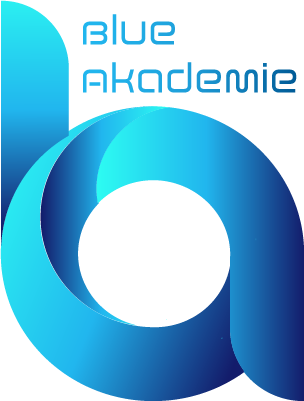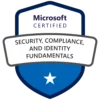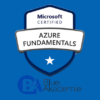Programming Essentials in Python
Prepared for those who want to open the doors of programming and take their place in the world of the future, the course aims to teach general programming concepts with the most modern methods using Python, the shining star of recent years. Valid all over the world and issued by the Python Institute; With the course content prepared in accordance with the curriculum of the PCEP – Certified Entry-Level Python Programmer and PCAP – Certified Associate in Python Programming certification exams, it aims to provide trainees with a certificate level of programming and Python knowledge, starting from scratch.
Who Can Participate?
Anyone who wants to learn Python Programming Language and Modern Programming techniques or aims to obtain PCEP and PCAP certificates can attend the course. The course curriculum is designed especially for those who know little or no programming knowledge. The first part of the curriculum has been prepared in accordance with the PCEP – Certified Entry-Level Python Programmer certificate, and the second part has been prepared in accordance with the PCAP – Certified Associate in Python Programming certificate curriculum. The only requirement for participating in the course is basic mathematical knowledge and the ability to use a personal computer.
Program Timestamp:
2 days a week (Two hours each on Tuesdays and Thursdays)
Python:
Python is one of the programming languages that is widely used around the world and has become increasingly popular especially in recent years. Although Python, which is used in many different fields, is an object-oriented, high-level programming language with dynamic semantics, it is considered one of the easiest languages to learn because it uses simple syntax rules. That’s why it is the most recommended programming language for those who will take their first step into the software world. It is supported by a very large community and has become a favorite of software developers all over the world with its large number of open source, free documents and libraries.
In addition, Python is one of the languages that those who want to make a career in cloud computing should know.
As its designer Guido van Rossum describes it; Although it is easy, it is a programming language that is at least as powerful as its competitors, is open source and free, has an understandable syntax close to a plain text, can be written in a short time and can be used in daily work.
Why Python?
Python is becoming more widespread day by day in the modern programming world, new software companies are integrating Python into their systems every day, flagship web applications are increasing their use of Python, and many software developers, young or old, newly graduated or experienced, are learning Python. Of course, there are many reasons for this, but the most important ones are:
– Easy to learn: Compared to other languages, it is possible to learn and start writing your own code in a shorter time with Python.
– Easy to teach: It is also an easy language to teach because it is a more result-oriented language and has fewer strange exceptions and difficult-to-understand rules, so the educator can increase success by focusing more on general programming techniques.
– Easy to use: When coding an application, it will generally take less time to write it with Python.
– Easy to understand: When reading code written by someone else, you can understand it faster and easier if it is written in Python.
– Easy to access, install and use: Python is completely free, open source and available on all platforms.
Course Content:
The course consists of two parts and prepares you for two certificates that are valid all over the world and issued by the Python Institute.
In the first part of the course (50 hours), training is provided for the PCEP – Certified Entry-Level Python Programmer certification program.
In the second part of the course (70 hours), training is given for the PCAP – Certified Associate in Python Programming certification program.
Basic skills you will gain at the end of the course:
– Ability to set up algorithms. Analysis of a problem and incorporating computers into the processing process.
– Designing and developing computer programs containing a large number of modules. Improving these programs.
– Analyzing and modeling life problems within the framework of Object-Oriented Programming.
– Being able to understand the work of a software developer in the program development process.
– Ability to understand how a program is executed in a computer environment.
– Gaining the skills to create and develop your own programming portfolio.
First Part Content – PCEP – Certified Entry-Level Python Programmer:
The purpose of the first part is to introduce the trainee to general computer programming concepts such as conditional execution, loops, Python programming language syntax, semantics and execution environment, as well as general coding techniques and best practices. At the end of this section, the trainee will master universal computer programming concepts such as data types, containers, functions, conditions, loops, as well as Python programming language syntax, semantics and execution environment.
| Subject | Duration |
| Basic Programming Concepts | 9 Hours |
| Data Types, Variables, Basic Operators | 12 Hours |
| Conditional Execution, Loops | 9 Hours |
| Data Collections, Lists, Tuples, and Dictionaries | 10 Hours |
| Functions, Exceptions | 10 Hours |
| TOTAL | 50 Hours |
Second Part Content – PCAP – Certified Associate in Python Programming:
In the second part, it is aimed for trainees to assimilate general computer programming concepts such as conditional execution, loops, Python programming language syntax, semantics and execution environment, as well as to become acquainted with Object Oriented Programming. When trainees complete this department, they reach the level of competence to develop their own programs and begin to step up the career ladder in this field. They become familiar with all the basic tools provided by Python 3.
| Subject | Duration |
| Modules, Packages and PIP | 9 Hours |
| Strings, String Methods | 9 Hours |
| Lists, List Methods | 12 Hours |
| Advanced Exceptions | 6 Hours |
| Object-Oriented Programming | 16 Hours |
| File-system, directory tree and files | 9 Hours |
| Python Standard Libraries | 9 Hours |
| TOTAL | 70 Hours |
Requirements:
-A second monitor to follow the teacher and perform the applications.
To register:
- Pre-register by entering the information requested during the registration process for the relevant course on our website.
- Once the pre-registration process is completed, an email will be sent to you at contact@blueakademie.de. This email contains your pre-registration number (For example: [Your Registration #10573]) and some other information.
- Make the payment to the relevant bank/Paypal account. Please indicate your pre-registration number in your payment statement.
- You will be notified by e-mail when the registration process is completed.
Those who pay the tuition fee/first installment into the Blue Akademie account are included in the quota respectively.
Note: For your installment payment requests, please contact Blue Akademie.
Bank information:
Bank Name: Sparkasse KölnBonn
Recipient Name: Blue Akademie UG
IBAN-Number: DE77 3705 0198 1935 4838 73
Payment via PAYPAL (Due to deductions, an additional payment of 3% must be made to the course fee):
Address: hr.blueakademie@gmail.com



